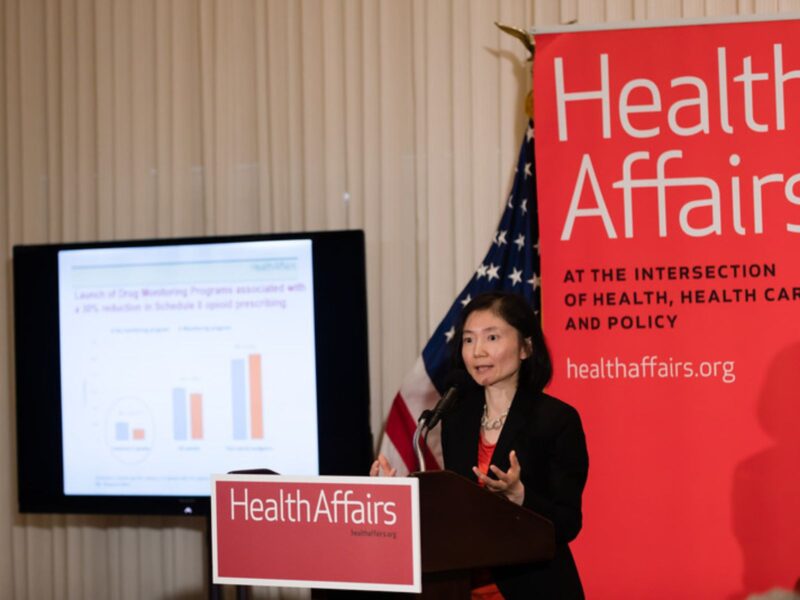Pilot Grant Awardee Dr. Yuhua Bao Presents at Health Affairs Issue Briefing

Pilot grant awardee Dr. Yuhua Bao was invited to present her recent publication, “Prescription Drug Monitoring Programs Are Associated with Sustained Reductions in Opioid Prescribing by Physicians,” at the Health Affairs Issue Briefing on Behavioral Health in Washington, D.C on June 7, 2016. Dr. Bao’s presentation centered on her publication in the June 2017 issue of Health Affairs and is based on results of ongoing research supported by her CHERISH pilot grant. The study found that the launch of a state prescription drug monitoring program (PDMP) was associated with a 30% reduction in the prescribing of opioids with the highest abuse potential.
In order to combat the epidemic of prescription drug overdose, state legislatures have sought to use PDMPs to help prescribers identify patients at high risk of misusing or diverting controlled substances. State PDMPs collect data on controlled substance use from pharmacies. Typical users of PDMPs include prescribers, pharmacists, state medical licensure boards, and law enforcement agencies. Legislation regulating how PDMPs operate varies from state to state, and all states except Missouri have a PDMP.
Dr. Bao’s study used nationally representative data of office-based visits and focused on 24 state that implemented or upgraded their PDMPs from 2001-2010. The study examined the effects of PDMP implementation on prescribing of Schedule II opioid analgesics, Schedule III opioid analgesics, and other pain medication. She and her colleagues, including CHERISH Director Dr. Bruce Schackman who is senior author, found that PDMP implementation was associated with immediate and sustained reductions in Schedule II opioid prescribing. These results show that PDMPs are a promising tool in reducing the availability of Schedule II opioids. The study also suggests a need for future studies to compare the effectiveness of specific state policies governing the use of drug monitoring programs.